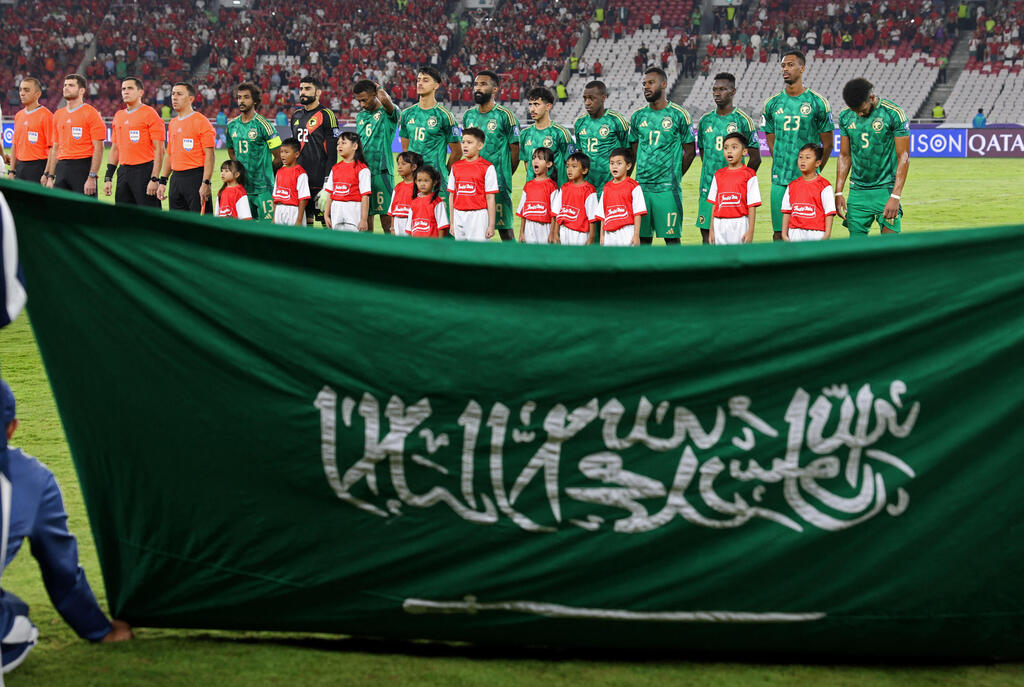Getting your Trinity Audio player ready...
Last week, FIFA made history by announcing that Saudi Arabia will host the World Cup finals in 2034 for the first time. This milestone represents the culmination of Saudi Arabia’s ambitious flagship plan to place the desert kingdom at the center of the global sports stage.
The first ripple in Saudi Arabia’s growing influence in the world of soccer came with Cristiano Ronaldo’s headline-grabbing move to Al-Nassr in the Saudi Pro League. The transfer not only sparked a surge in match attendance but also placed the league firmly in the international spotlight. In the years since, Saudi Arabia has continued to lure soccer’s biggest stars with astronomical contracts, including the likes of N’Golo Kanté, Sadio Mané and Ballon d'Or winner Karim Benzema – transforming the league into a hub of elite talent.
Saudi Arabia’s bold vision to dominate the world of sports may ultimately place the kingdom at the center of the new global order
The rise of Middle Eastern influence in soccer began years earlier, with Qatar and the UAE acquiring European soccer giants like Paris Saint-Germain and Manchester City. This trend reached a crescendo in 2022 when Qatar hosted the World Cup. Saudi Arabia’s successful bid to host the tournament in 2034 represents the next chapter in the intense regional rivalry between Qatar, the UAE and Saudi Arabia for dominance on the global stage. In recent years, Saudi Arabia’s Public Investment Fund has pledged over €30 billion to strengthening its domestic league. This investment is a cornerstone of the Saudi government’s Vision 2030 initiative, which aims to elevate the country’s international profile. As part of this vision, Saudi Arabia has hosted a slew of major sporting events in recent years.
Like their Gulf neighbors, the Saudis have made bold moves to cement their presence in global soccer. They acquired Newcastle United, a Premier League club, and have signed hundreds of sponsorship and partnership agreements with various sports federations. But Saudi Arabia aspires to achieve more than just importing star players. The kingdom is also focused on significantly improving the quality of coaching in youth academies and senior teams, aiming to cultivate a new generation of Saudi talent to compete on the world stage.
(Saeed al-Owairan scoring a solo goal against Belgium in the 1994 World Cup)
The Saudi government has set its sights on increasing the number of active soccer players in the country tenfold by 2030, with the ultimate goal of establishing the Saudi Pro League as one of the world’s top leagues. This initiative is driven by more than just a desire for sporting prestige. With 70% of the population under the age of 35, Saudi Arabia is one of the youngest countries in the world. Investing in soccer is part of a broader effort to promote a healthy, active lifestyle while identifying and nurturing young talent to elevate the national team’s standing in international competitions.
Get the Ynetnews app on your smartphone: Google Play: https://bit.ly/4eJ37pE | Apple App Store: https://bit.ly/3ZL7iNv
The use of sports as a tool to achieve political and national goals is nothing new. Throughout history, governments have viewed sports as a form of “political socialization,” using international sporting achievements as a means of gaining prestige and influence. Political leaders have long sought to tie their names to significant sporting events, leveraging success on the field to bolster their power and reputation.
Saudi Arabia’s bold vision to dominate the world of sports may ultimately place the kingdom at the center of the new global order. However, this ambition has not come without controversy. Human rights organizations have fiercely opposed the country’s actions, raising concerns over labor exploitation and the potential for worker fatalities – issues that were also highlighted during Qatar’s World Cup preparations. Despite such criticism, one thing is clear: Saudi Arabia is determined to reshape the future of international sports, and it seems poised to stand at center stage in the years to come.
- Dr. Ofer Muchtar is a senior lecturer in criminology for the Ashkelon Academic College


